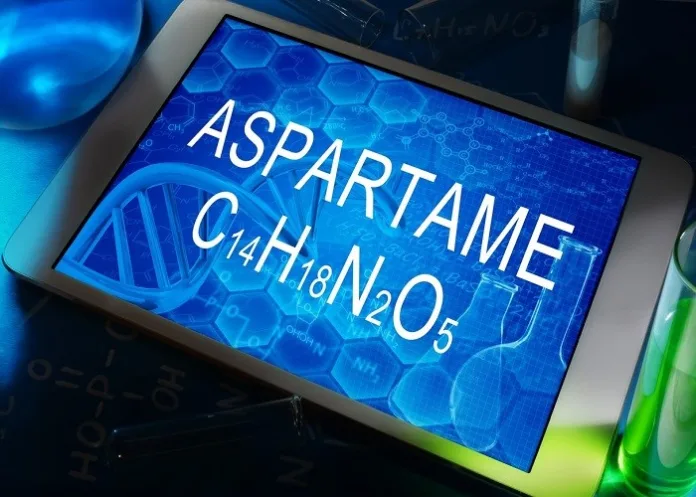The controversy over artificial sweetener aspartame continues, with a global research agency raising a cautious red flag about its link to liver cancer, following the WHO this months designating it as “possibly carcinogenic”.
The International Agency for Research on Cancer's (IARC) Dr Mary Schubauer-Berigan described the sweetener as “possibly carcinogenic to humans” based on “limited evidence” of links to a liver cancer called hepatocellular carcinoma, reports Health Policy Watch.
However, without overwhelming evidence, the WHO will not change its guideline on aspartame consumption, the agency said in an assessment of exposure risks, stating that it was ”safe at common use levels”.
The chemical-based sweetener that is hundreds of times sweeter than sugar was approved for use in certain products in 1974 by the US Food and Drug Administration (FDA), which issued a safety finding in 1981 and approved it as a general-purpose sweetener in 1996, reports Moneyweb.
The WHO guideline, set in 1981, holds that it is safe for most people to consume up to 40mg of aspartame daily per kilogram of body weight.
In the latest risk assessment, the WHO and Food and Agriculture Organisation’s Joint Expert Committee on Food Additives (JECFA) concluded that there was “no convincing evidence from experimental animal or human data that aspartame has adverse effects after ingestion”, said Dr Francesco Branca, the WHO’s director of Nutrition and Food Safety.
While IARC assesses carcinogenic hazards, as such, JECFA looks at what levels of actual exposure to the hazard are really dangerous.
“It is very important to note that this was a hazard identification and not a risk assessment,” said Schubauer-Berigan, who heads the monograph programme at IARC, a France-based research institution affiliated with the WHO.
“A hazard identification aims to identify the specific properties of the agent and its potential to cause harm,” she added.
IARC has four classifications: 1. causes cancer; 2A. probably causes cancer; 2B. possibly causes cancer and 3. unclassifiable as a cancer risk. It has given aspartame a “2B” classification.
Links to other health conditions
Aspartame has, in the past, been linked to a wide range of other serious health conditions aside from cancer. US-based public health group Right to Know recently cited peer-reviewed studies around the sweetener’s links to cardiovascular disease, Alzheimer’s seizures, stroke and dementia, along with a range of head, stomach and mood disorders, and even weight gain.
In a study last year, researchers from France’s National Institute of Health and Medical Research, or Inserm, found that of 103 000 people studied, those who consumed high amounts of aspartame had a 15% higher risk of developing cancer.
And research published last week looking at aspartame’s possible links to Parkinson’s disease found “multiple studies demonstrated decreased brain dopamine, decreased brain norepinephrine, increased oxidative stress, increased lipid peroxidation, and decreased memory function in rodents after (aspartame) use”.
However, Branca said this study had been published too late for IARC or JECFA to consider
Dr Federica Madia, IARC’s senior toxicologist, said that while aspartame’s key components were almost completely hydrolysed during digestion, there was consistent evidence of oxidative stress, some evidence that it increased insulin levels, and suggestions of impact on “chronic inflammation and increase angiogenesis”.
“The evidence is still limited, but it is there where we would like to investigate more,” said Madia.
The food and beverage industry and experts from the science community have criticised the limited evidence of the IARC study, reiterating earlier studies that have determined aspartame to be safe and saying that despite the new classification from the IARC study, the JEFCA study didn’t change what it considers an acceptable daily amount of aspartame.
The agency has previously determined that an adult weighing 70kg can consume nine to 14 cans of soda daily, each containing 200mg to 300mg of aspartame, and stay within a safe range of consumption, reports MoneyWeb.
Evaluations by the FDA and the European Food Safety Authority have so far rebuffed claims that there is significant evidence of health risks. The FDA said aspartame is “safe for the general population under certain conditions of use”.
In discussing IARC’s assessment, Schubauer-Berigan said “the findings of limited evidence of carcinogenicity in humans and animals, and of limited mechanistic evidence on how carcinogenicity may occur, underscore the need for more research to refine our understanding on whether consumption of aspartame poses a carcinogenic hazard”.
“If there were any cause for concern, they would have adjusted the current acceptable daily intake,” said Arnold Baskies, the past chairman of the national board of directors of the American Cancer Society.
Added Paul Pharoah, a professor of cancer epidemiology at Cedars-Sinai Medical Centre in Los Angeles: “The evidence that aspartame causes primary liver cancer, or any other cancer in humans, is weak. The general public should not be worried.”
Aspartame is ‘possibly’ carcinogenic, yet safe at common use levels, WHO says (Open access)
The Lancet article – Carcinogenicity of aspartame, methyleugenol, and isoeugenol (Open access)
See more from MedicalBrief archives:
Aspartame to join WHO’s cancer risk list, but industry calls for evidence
Artificial sweetener warning from WHO
Artificial sweeteners and increased cancer risk – French cohort study

